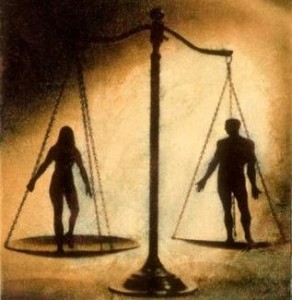 ‘This decree brings about gender equality in our criminal justice system.’ – Attorney-General and Justice Minister Aiyaz Sayed-Khaiyum, on Fiji’s new prostitution laws.
‘This decree brings about gender equality in our criminal justice system.’ – Attorney-General and Justice Minister Aiyaz Sayed-Khaiyum, on Fiji’s new prostitution laws.
So it turns out to be easy to bring about Gender Equality! Just pass a law saying that the buying of sex is a criminal offence and voilá, Women’s Rights are ensured.
Although simple hatred of prostitution is still given as enough reason to institute these laws (see comments in Israel’s Knesset last January), Gender Equality is increasingly given as the argument for legislation aimed at men who buy sex or facilitate its buying and selling (the vague categories pimps and traffickers).
As laws, they are difficult to enforce: it’s too hard to get the evidence to prove most cases and no police force is granted the immense funding that would be necessary to pursue every possible instance of sex-buying, and keep at it over and over, until consumption theoretically ceased. Socially, the laws probably just move transactions to less visible venues. And as possible promoters of cultural change, which is what people really want, these laws are impossibly crude (prohibiting people the fulfillment of their desires rarely works). All of which those in favour of these laws know on some level. But as symbolic moves aimed at performing Gender Equality, anti-demand laws capture the imagination across the globe.
Now, coming back to Fiji, here is the analysis of an economist there:
‘Prostitution is a social redistribution mechanism, and to try and forcefully stop it can lead to some dire consequences. ‘- Sunil Kumar, a senior lecturer in economics at the University of the South Pacific, Suva
‘While prostitution is looked down on by society, there are some positive outcomes from it that cannot be denied.’ He cites the example of single mothers who do not earn enough from regular work, or those who do not receive state social support. Some of them turn to sex work to feed and educate their children, he says.
The new decree now targets people who hire sex workers and all those who benefit financially from the trade. Even those living with sex workers are now liable under the new law, which took effect on February 1. Section 230 of the law’s prostitution offences says that a person living on sex-work earnings or persistently soliciting faces a jail term of up to six months. ‘Selling or buying’ minors for immoral purposes is now punishable by 12 years’ imprisonment. Brothel keepers face five years of imprisonment as well, or a fine of F$10,000 (US$5,000), or both.
Do Fijians feel more equal now, I wonder?
More at Fiji: Law enforcement approach to sex work falls short, Shailendra Singh, 12 April 2010, InterPressService News

Pingback: Prostitution | Gender Equality | Fiji | Clients | Demand | Laws … Staff
Sweden has had that law since 1999.